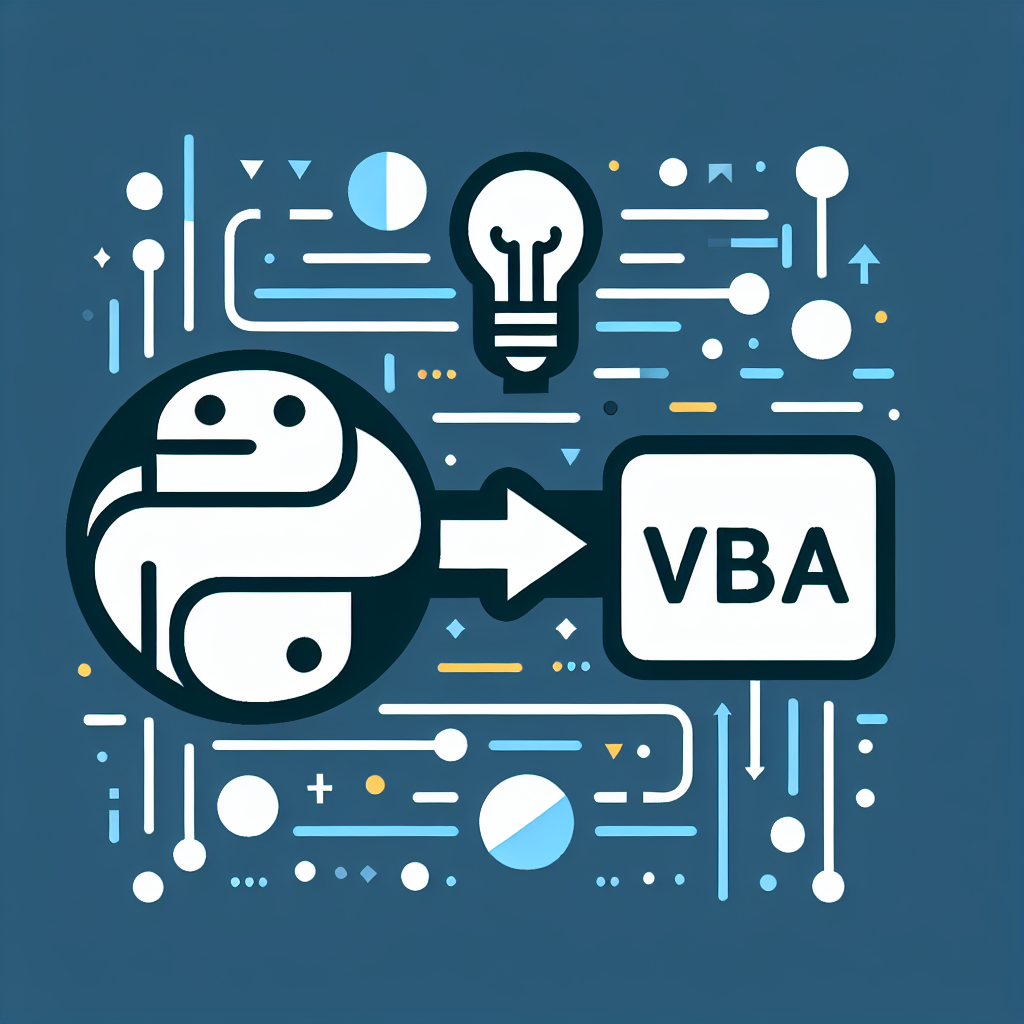Convert Python to VBA Easily: Streamline Your Workflow
Effortlessly convert Python scripts to VBA with our powerful tool. Streamline your workflow and enhance productivity. Try our Python to VBA converter today!
Source Code
Converted Code
Output will appear here...The Python to VBA Converter streamlines the process of transforming Python scripts into VBA code, enhancing workflow efficiency for data analysts and Excel enthusiasts. This powerful tool bridges the gap between Pythons advanced analytics capabilities and VBAs seamless integration with Microsoft Excel, enabling users to automate repetitive tasks and enhance productivity. Ideal for professionals seeking to leverage Pythons robust functionalities within the familiar Excel environment.

Python to VBA Conversion Tool Link to this section #
Effortlessly convert Python scripts to VBA code with our Python to VBA conversion tool. This tool is ideal for professionals who need to integrate Python functionality into Microsoft Office applications like Excel, Word, and Access.
Key Features Link to this section #
- Ease of Use: With a simple interface, this tool streamlines the conversion process.
- Compatibility: Converts complex Python functions into VBA, ensuring seamless integration.
- Speed: Reduces manual effort, allowing for swift conversion.
How It Works Link to this section #
- Input Python Code: Paste your Python script into the tool.
- Conversion: The tool translates Python syntax to VBA syntax.
- Output VBA Code: Retrieve the generated VBA code ready for use in your Office applications.
Example Code Snippets Link to this section #
Python Code:
def greet(name):
return f"Hello, {name}!"
print(greet("World"))
Converted VBA Code:
Function Greet(Name As String) As String
Greet = "Hello, " & Name & "!"
End Function
Sub DisplayGreeting()
MsgBox Greet("World")
End Sub
Benefits Link to this section #
- Productivity Boost: Save time by automating the conversion process.
- Error Reduction: Minimize syntax errors with accurate translation.
- Broaden Skillset: Leverage Python’s power within VBA environments.
Additional Resources Link to this section #
- Automate Excel with Python for advanced Excel automation.
- Explore VBA Documentation for a deeper understanding of VBA capabilities.
Our tool bridges the gap between Python and VBA, empowering developers to harness the best of both worlds. Whether you're automating reports or enhancing data analysis, this conversion tool is your gateway to seamless integration and enhanced productivity.
Frequently Asked Questions
How can I call a Python script from VBA?
To call a Python script from VBA, you can use the Shell function. This involves specifying the path to the Python executable and the script you want to run. For example: `Shell "C:\Python39\python.exe C:\path_to_your_script\script.py"`.
What are the main differences between Python and VBA?
Python is a general-purpose programming language known for its readability and extensive libraries, suitable for a wide range of applications. VBA (Visual Basic for Applications) is specifically designed for automating tasks in Microsoft Office applications like Excel and Access. While VBA is tightly integrated with Office, Python offers more flexibility and is widely used for data analysis, web development, and more.
Can I convert Python code to VBA?
Direct conversion of Python code to VBA is not straightforward due to their syntactical and functional differences. However, you can manually translate logic by rewriting Python functions in VBA, keeping in mind that some Python libraries may not have direct equivalents in VBA. For complex tasks, it might be beneficial to run Python code from VBA using scripts or external tools.